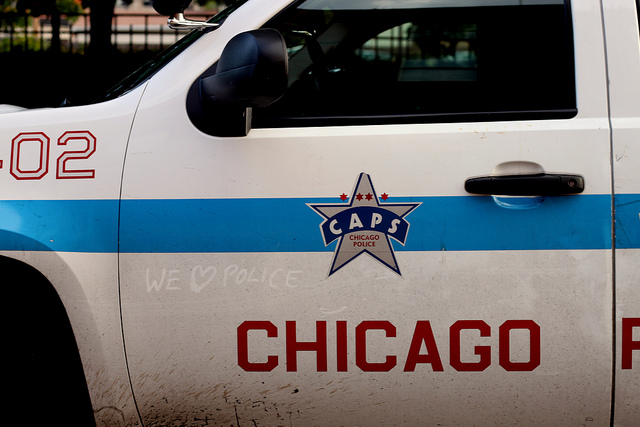ACLU Report Shows Chicago Stop And Frisk Worse Than New York
By aaroncynic in News on Mar 24, 2015 2:10PM
Chicago Police are leading the way now in “stop-and-frisk,” surpassing even New York City’s use of the controversial practice. According to a report released by the Illinois American Civil Liberties Union yesterday, CPD conducted a quarter million stops that did not lead to an arrest, with Chicagoans being stopped more than 4 times as often as people in New York.
“Chicago has been systematically abusing this practice, for reasons that are not justified by our constitution,” said Harvey Grossman legal director for the Illinois ACLU.
As in New York (and many other places nationwide), the stops disproportionately target people of color. African Americans were subjected to 72 percent of all stops and more stops occur per capita in neighborhoods populated predominantly by people of color. On average, 93.6 per 1,000 Chicagoans were stopped. In Englewood, that number jumps to 266 per 1,000 but around Lincoln/Foster, it’s 43 per 1,000. Though an area like Near North is only about 9 percent African American, they make up nearly 60 percent of all stops.
Karen Sheley, senior legal counsel and one of the authors of the report said:
"What this data shows should be a wake-up call for residents of the City. CPD is engaging in wholesale stop-and-frisks of African American youth, without any link to criminal activity in most cases. These stops don’t make us safer, they simply drive a wedge further between the police and the public they serve.”
The report also found that CPD’s record keeping system is woefully inaccurate. Officers are required to fill out “contact cards” when making a stop, and a random sampling of cards from selected months in 2012 and 2013 found that half of all stops recorded did not contain a legally sufficient reason for initiating the stop. Additionally:
“In a number of other instances, police stated that they stopped someone for a reason that was unrelated to criminal activity (associating with others who were suspicious, for example) or asserting that someone ‘matched a description’ without any explanation of how or what description was matched.”
Marty Maloney, a spokesperson for Police Superintendent Garry McCarthy, told the Chicago Tribune the department prohibits race-based policing and racial profiling and that it’s improved training over the past three years, also stressing it has returned to community policing to foster better relationships in communities.
Still, Grossman said the report shows the policy is a big problem in Chicago. “The data makes clear that stop-and-frisk is a problem in Chicago and needs to be reform,” said Grossman. “The City has an opportunity to make modest fixes now, rather than risk further alienation with large swaths of the public.” Those fixes include requiring police to collect data on all stops and all frisks (the department keeps no data on frisks), making it public, requiring cops to issue a receipt for every pedestrian stop and additional training.
